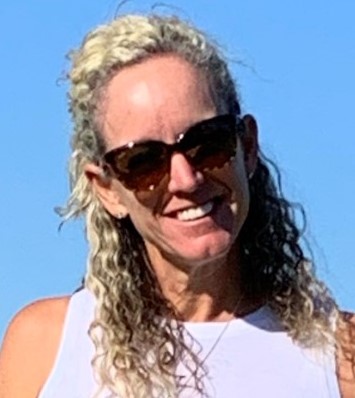Vending
Convenience services operators primed for trade show season
With micro markets continuing to lead the growth, convenience services operators are looking for more product variety than ever. Operators are overall primed for 2023 trade shows, even though some are too busy to break away.

May 9, 2023 by Elliot Maras — Editor, Kiosk Marketplace & Vending Times
Business is back big time in convenience services this year, and operators are anxious to see what's new in both products and technology. Industry trade shows will also be back in a big way.
Interviews with randomly selected operators indicate many are looking forward to meeting with suppliers face to face. Some operators are too busy to attend trade shows any time soon, but are nonetheless anxious to hear from industry colleagues what's new on the trade show floors.
Micro markets lead growth
With micro markets continuing to lead the growth, convenience services operators are looking for more product variety than ever. One of the top benefits micro markets offer, after all, is the opportunity to provide customers more variety to meet individual customer preferences.
And while micro markets are leading the growth, operators agreed that vending is also on a fast growth trajectory for the second straight year of the post-pandemic recovery.
As for office coffee service, the verdict remains mixed. While some operators say OCS has fully recovered from COVID, others say that sector continues to lag. One reason OCS continues to lag, however, is that many multi-line services operators are too busy with higher volume micro markets and vending.
Many operators also pointed out that pantry service, which like OCS is a service the employer pays for rather than the employee, is a new growth area as employers are anxious to provide more employee benefits in today's economy.
Overall, optimism in convenience services is at a record high.
In search of opportunity
"Our primary purpose for going there (to the spring NAMA show) is finding new opportunities for both technology and products … just trying to stay up on trends and opportunities that are new to the industry," said Paul Brown, president of San Antonio, Texas-based McLiff Vending + Coffee.
While micro markets lead the growth, McLiff Vending + Coffee is growing in all segments, Brown said, including OCS. Like many operators interviewed, finding labor is the company's biggest challenge in working to meet customer demand.
 |
Jeff Hemp |
Jeff Hemp, on-premise business development manager at DC Vending and Distributing Inc. in Yakima and Pasco, Washington, will also have his eye on technology at the spring trade show. With micro markets growing fast, Hemp would like to see micro market software integrate better with vending, coffee service and catering. He was one of several operators who cited the need to integrate coffee better with micro markets.
"If the technology was there to tie the coffee machine to the kiosk so that the consumer could pay for it at the kiosk … It would be nice if you could go up to the kiosk and say, 'I want a large vanilla latté,' and you hit 'go,' and it starts making it in the coffee machine," Hemp said.
Coffee and micro markets
Seventh Wave Refreshments in Atlanta has been able to address this issue with having a button on the kiosk that customers press after serving themselves coffee at a single-cup brewer in the micro market, said Linda Saldana, CEO. She also sometimes has fractional pack coffee with bar codes that customers can scan at the kiosk.
In most micro market accounts, however, Saldana prefers to provide coffee via her OCS service rather than offering it in the micro market.
 |
Linda Saldana |
"It really depends on what our vision and our goals are with it, but for the most part, I try not to do too much of that (having coffee in the micro market)," she said.
For Saldana, pantry service has been the strongest growth segment.
"Pantry has been really big in Atlanta," she said. "Pantry has definitely opened up customers that I never thought would actually offer free snacks or free drinks. That's been really impactful for our business. People are definitely trying to do everything they can to bring people back to work."
Saldana is anxious to see new products and technology at the trade show.
Matt Bingham, general manager, Blue Sky Supply Inc., Tulsa, Oklahoma, also sees opportunity in pantry service as part of the company's OCS route deliveries.
 |
Matt Bingham |
"We do get a lot of requests for it," Bingham said for pantry service. He agreed with Saldana that employers are looking at new benefits to offer employees since labor is so scarce.
"It's hard to get employees so companies are trying a lot of different things to keep their employees engaged and retained, and to attract them," he said.
Bingham, whose company operates 70 micro markets, will be looking at micro market kiosks and coolers, bean-to-cup brewers and other single-cup brewers at the trade show.
For Laurel Foodsystems Inc., a Canteen franchise in Pittsburgh, Pennsylvania, pantry services were doing well until the technology companies began laying off employees, said Don Diffendal, vice president of finance.
The company has, nonetheless, been on a growth curve, with micro markets leading much of the growth.
The biggest challenge for Laurel Foodsystems has been passing on product price increases to customers.
Kwik Kafe, based in Bluefield, Virginia, has also offered coffee in micro markets by having a button the customer can press to pay for a cup of coffee, said DJ Campion, systems administrator. The company also offers OCS to micro market accounts.
For Kwik Kafe, however, the commissary kitchen has been the big point of difference in the market since it allows the company to offer freshly prepared food, Campion said.
Kwik Kafe also capitalizes on being a multi-generational, local provider. Lexi Kiser, daughter of President Scott Kiser, joined the company last year as manager of the Abingdon, Virginia office.
"She's been putting her own stamp on things, and that's been helping grow the business," Campion said. "That's been a really big boost here in the last year."
Geographic variances
 |
Jodi Glimpse, co-founder and president of Camelback Vending Services in Phoenix, Arizona, is among those operators who can't get away from the business to attend a show because of the company's rapid growth. This past year was the best in the company's 18-year history, and double its previous sales peak year.
"Everything's been healthy," Glimpse said. "Thanks to California and their business policies, our city is growing exponentially." Another factor is that some competitors went out of business during COVID.
While all business segments are growing for Camelback Vending Services, Glimpse has not had to invest in new vending equipment, thanks to micro market conversions.
"At some point we end up converting that account to a market and then we have more vending equipment available," she said. The company has 10 combination routes (routes that service micro markets, vending and OCS) and 26 employees.
 |
Adam Smosny |
Micro markets are also driving much of the growth for Imperial Vending Co. in Cleveland, Ohio, but owner Adam Smosny doesn't see vending going away. One issue with micro markets is customer theft, which some locations do not want to deal with.
Smosny has won accounts from convenience services operations that don't offer vending.
"Some of the 'vending' companies are doubling down and saying, 'We're not putting vending out any more,'" he said. "You do have theft and you've got to be able to manage it."
While Smosny's OCS business has recovered about 15% from its pandemic decline, he hasn't focused on OCS mainly due to the demand for vending and micro markets.
"I don't foresee people coming back to offices en masse," he said.
Raising prices to cover higher costs is the biggest challenge Smosny is currently facing, echoing Diffendal at Laurel Foodsystems.
"People have a hard time spending $2 for a 20-ounce bottle," Smosny said. "It affects volume a little bit. We got two price increases (from bottlers) last year from Pepsi."
Equipment supplier issues
 |
Jerry Lisle |
Jerry Lisle, owner of Master's Coffee and Water Service in Redlands, California, also has trouble making time for trade shows, but he is anxious to meet suppliers in several areas.
"We would always be looking for cooler and POU (point-of-use) options," he said. "I'm concerned not so much from an environmental standpoint but just a flat-out waste standpoint. We throw away so many coolers; it's so wasteful."
Water coolers are mostly made in China and good parts are not usually available.
Lisle would also like to find a solution for recycling 5-gallon bottles, which his local recyclers will not take.
"Is there something that could be done in the industry about disposing of these 5-gallon bottles in a somehow responsible manner?" he asks.
In addition, rising shipping costs for coffee deliveries has him looking for a roaster closer to home.
His Indiana coffee roaster recently raised its shipping cost, boosting his fractional coffee pack costs $3 to $4 per box forcing him to pass a $6 to $8 cost to customers. It also boosts his bulk coffee costs by $18 per case, which could result in a $30 per case increase for customers.
Lisle also wants better maintenance support from his bottling equipment manufacturer, San Antonio-based Steelhead Inc.
Most importantly, he needs new vehicles. His major vehicle supplier, Hino Motors Ltd., a Toyota subsidiary, halted shipments of certain models due to a scandal concerning its emissions efficiency last year, according to media reports.
Master's Coffee and Water Service has grown rapidly in the last two years — bottled water sales rebounded 22% in 2022 and are up 23.5% in Q1 2023, while coffee service rebounded 39% in 2022 and is up 45% in Q1 2023. Nevertheless, vehicle repairs sabotaged profits.
"Maintaining vehicle fleets right now is an extremely expensive proposition, and that killed us," Lisle said.
Photos: LinkedIn
About Elliot Maras
Elliot Maras is the editor of Kiosk Marketplace and Vending Times. He brings three decades covering unattended retail and commercial foodservice.
 ChatGPT
ChatGPT Grok
Grok Perplexity
Perplexity Claude
Claude






